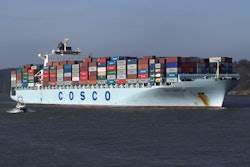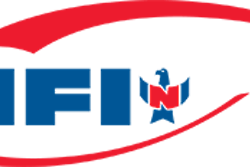
Editor’s Note: The following article is brought to you by Amber Road in partnership with the Supply Chain Network.
There is a lot to be worried about in 2017 for those companies reliant on global trade. You are encountering the anticipated shifts in worldwide trade policies stemming from a series of governmental changes such as the U.S. election, last year’s trade volumes and retail sales hitting bottom, transportation and logistics companies running aground, brick and mortar stores turning out the lights for good, and everyone being asked to do less with more.
However, the ongoing burden of responsible sourcing and social compliance continues to pose challenges for manufacturers in many regions around the world including Bangladesh, Myanmar, and Vietnam. The problem isn’t exclusive to Asia, either; many European countries housing refugees have put them to work in manufacturing facilities and other manual labor jobs with little oversight. Let’s look at some of the most current circumstances regionally.
- Bangladesh is a hot bed right now, mainly focused around the living wage. Things are so fired up that just a few weeks ago the U.S. State Department issued a first-ever travel warning specifying “garment buyers” along with “expats, tourists, diplomats, missionaries, and sports team” as potential threat targets in the most “secured zones.” This is due to credible threats from Da’esh or ISIS-based groups. But the new security warning is completely unrelated to the recent protests and factory closings in Ashulia, which have caused greater issues. That situation started in mid-December when a group of 121 factory workers were fired for protesting the minimum wage, which hasn’t increased since 2013 and averages about $40 a month. Since this episode, other factory workers and groups have protested openly for a review of the wage structure.
- Vietnam, holding the #2 spot for sourcing, is set to gain more market share in the future; and most will come from the EU market once the EU-Vietnam free trade agreement comes into force. When the first outline of TPP was released and Vietnam became the potentially new sourcing base, organizations on both the supply and buy side were making sure compliance issues like those seen in Bangladesh were avoided here. But what makes Vietnam lucrative is also a reason for apprehension – the country has an alarming wealth disparity and social inequality problem. One in every five Vietnamese live under the poverty line and 8 percent live in extreme poverty. Millions of others live just above the poverty threshold and remain vulnerable to falling back into poverty at the slightest shock. Every precaution should be taken to avoid a major societal breakdown that could affect the manufacturing sector.
- Myanmar and Cambodia remain rampant with working and living conditions far below acceptable standards. The International Labor Organization (ILO) implemented the Better Factories program in 2012, but only a small percentage of factories have established the minimum standards, which include securing the right to form unions, getting correctly paid minimum wages, prohibition of discrimination/harassment, and a number of very basic safety provisions. EU-based organizations have invested heavily in social compliance training for factories in Myanmar; a positive step in the right direction since EU sanctions were lifted in 2013 and imports have grown exponentially.
- Manufacturers are starting to redirect more production to Europe as labor costs are leveling out. This is caused by two major developments: the flood of refugees from war-torn countries like Syria created a cheap labor pool; and competition from new sourcing hubs such as Africa is forcing wage rates to become more aligned. But refugees aren’t provided with permanent housing and most are living in tent villages under deplorable conditions. In addition, with no new factories for them to work in, most are literally working from these tent villages. Countries like Jordan are flooded with over 40,000 migrant factory workers, making housing, safety and forced labor difficult to monitor or control. Human trafficking is also frequent as mass migration trends hit all-time highs and protection mechanisms fail to keep up.
- Africa has great potential as a sourcing hub with less trepidation than some of the aforementioned developing regions. According to a January juststyle.com report, apparel manufacturers are "nurturing new talent in countries that value skill and craft like Ethiopia and Kenya."
In order to balance compliance, cost and capacity in sourcing, some brands have built a collective auditing initiative to leverage the knowledge already gained from audits conducted by other brands. The Social & Labor Convergence Project is a collaborative effort to establish a standard audit protocol for the industry. The Project could dramatically reduce the time and cost the industry spends on audits, freeing up valuable resources to focus on other issues, such as addressing the root causes of the non-compliance found in audits, or improving the communities in which we operate.
The role of social compliance continues to morph alongside the global trade landscape. Compliance professionals must not only adhere to corporate standards and government regulations, but have also become responsible for creating and nurturing strong, ethical corporate cultures which insulate organizations from financial, legal and reputational risk.
It’s time to be as proactive as possible.
- Leverage technology systems to manage trading party and service provider data.
- Build strong and collaborative relationships with your suppliers.
- Participate with trade associations and other groups to share, while learning from others.
- Consult experts with industry knowledge to help.
Download Amber Road’s white paper, Navigating the World of Tougher Product Safety and Compliance Requirements, to learn approaches to help manage the increasing regulatory requirements and streamline product safety and social compliance initiatives.



















